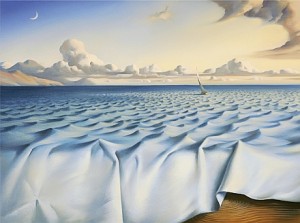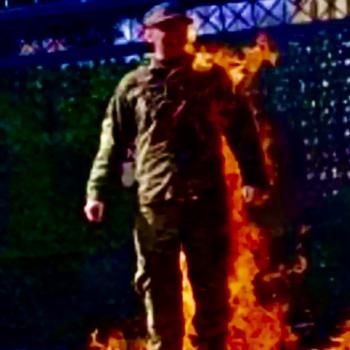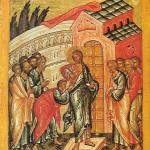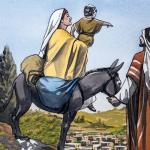After someone commits suicide you begin to filter through everything you know about them in the hope of gleaning all that remains good and beautiful and true.
At first, this proves difficult: there isn’t much left but murk and silt. But you find yourself returning again and again, panning in the stream of memories because flecks of gold begin to appear and the mere weight of them feels so precious.
I became familiar with this habit of disinterment long before my brother chose suicide. I say “chose” because in David’s case it was an idea he had talked about and lived with for some time, the act becoming a final expression of personal agency in a world that had seemingly closed all of its doors on him.
And yet, despite his choice, his memory, our kinship, abides.
At the best of times, his life was like the first lines of this William Stafford poem, “The Way It Is”:
There’s a thread you follow. It goes among
things that change. But it doesn’t change.
People wonder about what you are pursuing.
You have to explain about the thread.
But it is hard for others to see.
Brotherhood in this context is a strange proposition. When David’s thread was clear, his sense of wonder and discovery was infectious. When we were young, simply to walk with him at such times felt like traversing great distances. When we grew older, these distances became literal and we traveled down many interesting corners of the globe together.
David grew grim when the thread became difficult to see. Stafford’s poem has another line about the thread, the line that binds it all together:
While you hold it you won’t get lost.
You can move around a lot, as David did. You can hole up in the apartments of many odd and exotic nations. You can follow your thread even if it is hard to explain to other people why it has become your lifeline. But you cannot let it go.
My life with David was full of epic travelogues, intellectual curiosities, and culinary oddities. These arcana were the essence of David until their novelty dissipated.
Eventually he let go of the thread and got lost. After decades of anger and loneliness he decided that he would take himself out of the equation. David chose a violent end, one last bitter shout at God and the world and whatever else was there that night to listen.
Nothing you do can stop time’s unfolding.
You don’t ever let go of the thread.
Depression robs its victims of a sense of taste over time until the little differences between things that make pleasure possible merge into the brownish gray that appears when you mix all the paint colors in the palette together.
When our children ask about their Uncle David, we tell them that he was sick. That some people get a sadness so deep it is very much like any illness that makes one too tired to carry on.
As they grow older, I will tell them more about this place that David went. I will help them understand that depression and suicide are impossible to navigate, even for an experienced traveler like my brother. There are none of Stafford’s threads in this place. In fact, you have to trade yours in as price of admission.
I think this realization was one of the last things to cross his mind, along with an unfathomable terror.
One of David’s favorite acts of exploration involved a sea kayak. During one of our family vacations he would paddle out past the sand bar, out toward the horizon, and far enough away until we could only see him as a trompe l’oeil among choppy points of sunlight.
He would paddle back in later and ask if I could see him out there, because he had gone so far this time that he couldn’t see us or even our umbrellas anymore. He was, in his own way, comparing notes with me. He was looking for a sense of camaraderie that I couldn’t share because I nurture my tether to this earth. He, on the other hand, cherished that frisson of total disconnection.
I recently set out from that same beach on our summer vacation this year. Our first year without David.
I swam out far enough out that I could sense my wife was worried. Then far enough that I got a little worried, arriving at the place where the deep colors and temperatures of the sea begin to disclose themselves.
It was then that I sensed that farther out, now and forever, my brother David is paddling on into rays of light over a rising kingdom of waves. Every muscle alive with light and energy forever. He paddles in a perpendicular line from us on the adventure for which he was apparently built. Comparing notes now with God.
I felt that fear I used to always feel for him. But this time it came as a gift, as a faint connection that will bind us until we are together again in a world kind and full enough to forever engage his heart.
Until then, we keep following the thread.
Michael Leary is a Research Ethicist at Washington University in St. Louis and Lecturer on New Testament and Early Christianity at Emmaus College in Sydney, NSW. He is co-editor of Filmwell.org and author of the forthcoming Alternative History of Jesus from Cascade Press.
















